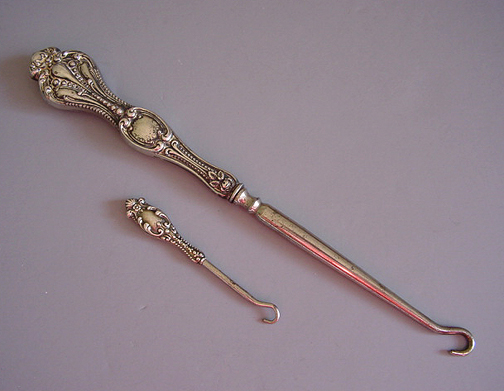
Posted on 10/10/2014 12:14:30 AM PDT by Windflier
This original and fascinating book sets out to discover which of the ten centuries from 1000 to 2000 saw the most change in the human condition.
Surely, most of us would say, it can only be the 20th century? Flying, mass motoring, space travel, advanced weapons, atomic power, telephones, radio and television, computers and iPads — what more change do you want?
Ah, says the historian Ian Mortimer, history is not just a matter of inventions. More important are changes in the conditions under which we live and, above all, in the ideas that are ruling at any one time.
Many crucial inventions are ones we take for granted. People can get by without laptops but not without buttons, introduced in the 1330s, which transformed the way people looked, from loose hanging garments to tight-fitting ones.
Think of how life indoors was transformed in the 1500s with the coming of efficient chimneys to take the smoke out and glass windows to let the light in (but not the cold). Or the coming of gas light in the streets in the 1820s and soon afterwards in the home with the boon of a gas cooker instead of the coal-fired range from 1834.
Electric light bulbs (1870) led to all kind of electrically powered appliances — kettles, toasters, fans and sewing machines by the end of the 19th century. And the Great Exhibition of 1851 unveiled the flushing lavatory which soon led to dedicated bathrooms for the well-to-do.
Columbus discovered the New World in 1492 but America’s existence made little difference to life for the average European except for the novelty of potatoes, tomatoes and tobacco.
Tea, coffee and chocolate did not appear till the 17th century, along with Dutch gin, French brandy, champagne and humble lemonade.
(Excerpt) Read more at dailymail.co.uk ...
In a similar vein I have often thought how little (mechanically)would have been possible without the ‘spring’.
Elastic.

My mom’s side of the family had roots in Northwest PA and western NY State. My grandfather told a story of his grandfather who was an accountant living near Meadville, PA in the late 19th. century. He was offered a chance to get in on the ground floor and invest in a new invention that he was told would “revolutionize the world”. The whole thing sounded crazy to him so he turned it down.
That invention turned out to be the zipper.
Antibiotics, mass vaccination and other things that lowered the average death rate for children from 50% to 15% certainly made a big difference.
I could probably deal with using a privy, but pumping/hauling water for cooking, cleaning and bathing would be rough. On the other hand, living without electricity...
***
An observation about all of this: None of us can envision going back to the way things “used to be.” We immediately acclimate ourselves to new inventions and improvements to older ones. But let something be taken away, even for a few hours, and we find it hard to adapt. I am glad for the occasional power failure or winter storm that forces us to appreciate, at least for a little while, what we have and how our lives have been made easier due to the ingenuity of others.
Paper.
It may get to cheap to meter, but it will never maintain itself.

Fire wasn't invented. It existed long before man, and became valuable to him when he figured out how to manipulate and control it. Buttons, on the other hand, were invented.
And while THIS invention we're using right now is great and all that, WHEN -- not if, but WHEN -- solar flares or some other natural OR human-generated disaster knocks out satellites and the electric grid ... BUTTONS will still work just fine.
Fascinating article as it causes us all to ponder history, both known and unknown. The most important advance in human development, I believe, was our ancestors’ observations of nature and how to gather seeds for cultivation and to domesticate animals for food supplies. Fire and cooking of course were huge - then harnessing the power of horses, water and wind. (Not those damn wind farms!!!!!). None of our modern inventions would have been possible without the knowledge collected from basic living functions.
As for modern medicine - my rural aunts and uncles avoided doctors and are living or lived into their 90’s.
Thanks for a great thread WF;)
Wrong. Stupid leftard author comes to some stupid leftard conclusions. But the article itself was interesting and provocative. Windflier, GOOD POST! Cnywoody ... take a pill!
Amen!!! I agree completely that GPS gizmos in cars represent a step backwards! ABSOLUTELY!!!!
Modern food preservation....After trying to put up some fruits and veggies this year I have been marveling at what our ancestors had to do to survive...prepare garden...plant...grow ...water...harvest...preserve...start over.
Just imaging how difficult it would be to open a bottle of fine wine without a corkscrew! And the bottle opener, I would have no teeth left by now if not for that. I'd have to break the top of it against something hard and would have broken shards of glass on my hands, not to mention the beer getting all fizzed up and spilling all over the place.
That was a baffling article, one of the strangest that I have ever seen.
NOTHING beats indoor plumbing, nothing (+TP)

My wife started a garden earlier this summer, and has had maybe 10% success with her little crops. It's a learning experience. She's also begun canning, and has done really well with that.
It really is a lot of work to replicate a simple can of green vegetables off the grocery store shelf.
Disclaimer: Opinions posted on Free Republic are those of the individual posters and do not necessarily represent the opinion of Free Republic or its management. All materials posted herein are protected by copyright law and the exemption for fair use of copyrighted works.